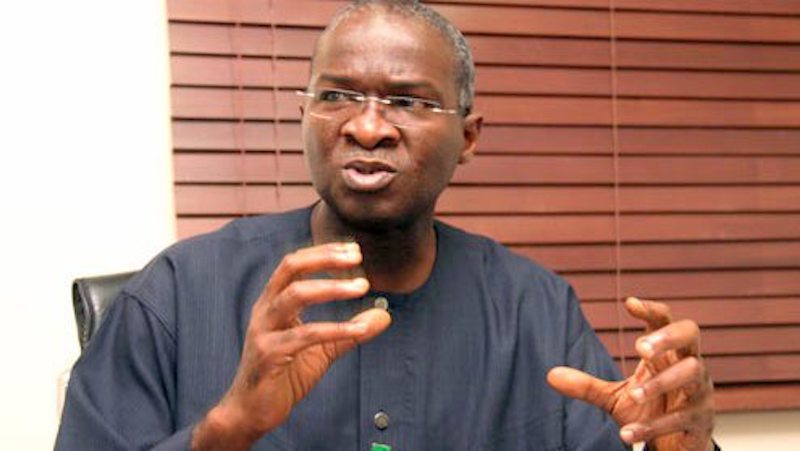The Nigerian electricity market is steeped in opaque pricing as operators are still trying to grapple with price methodology. This comes to fore with the recent and brewing feud between Nigeria’s electricity distribution and generating companies over what is being described as ‘inflated’ invoices.
It throws into the open another angle of the opaqueness of the pricing regime for electricity in the country. For years, the complaints have come from electricity consumers and end-users who have endured the burden of estimated and unexplained billing, even until today in areas without pre-paid metering facilities.
Sunday Oduntan, director of research & advocacy of the Association of Nigerian Electricity Distributors (ANED) stoke the fire last week when he said a lack of transparency between generating companies (GENCOs) and the Nigerian Bulk Electricity Trader (NBET) was part of the problems the electricity industry was facing.

Oduntan said the association’s allegation of lack of transparency was based on “inflated invoices” presented by GENCOs to NBET for settlement in respect of capacity charges included as part of the costs paid by distribution companies (DISCOs.)
“The capacity charge by the GENCOs should be equal to the quantum of energy consumed. But, GENCOs inflate invoices, therefore making capacity charges to be higher than energy charge. NBET and NERC (Nigerian Electricity Regulatory Commission) should know,” he said.
“The volume of energy consumed should be higher than the capacity charged. But, what is obtained is the other way round. Manipulating invoices is not acceptable. It’s time to say enough is enough,” he added, explaining that the capacity charge by GENCOs is higher than the price of the energy sold to DISCOs. He, therefore, called on the government to look at the issue.
“Between GENCOs and NBET, we need to see transparency. They should open their books and let everybody see what is there. Enough of this fraud,” Oduntan said during the briefing.
On the other hand, the Association of Power Generation Companies (APGC), the umbrella body of electricity generating companies, has challenged the DISCOs to come up with evidence.
Joy Ogaji, executive secretary, APGC, in a response denied knowledge of the allegation by ANED, describing it as “display of pure ignorance of how the electricity market works.”
“Trying to smear our image with such baseless and unfounded allegations is not only unfair, but misleading to the Nigerian populace, giving the impression that the sector is not regulated, and that market participants can do as they please,” Ogaji said when she response to questions put to her by PREMIUM TIMES.
She said the call for the removal of capacity charge from DISCOs payments was borne out of sheer ignorance of how the electricity market works, arguing that there was no place in the world where a GENCO was paid only on energy.
She explained that capacity charge payment was therefore needed to guarantee energy supplies and keep the prices as low as possible, without which new investments in power plants would come to a standstill.
Besides, she said the multi-year tariff order, MYTO, by NERC, was issued based on benchmarks on projections of the available capacity of energy to be sold in the market; including the cost of gas and other feedstock as well as the prediction of inflation and foreign exchange.
“GENCOs are paid based on their negotiated Power Purchase Agreements, PPAs, and therefore are not unilaterally determined. All negotiated PPAs are approved by NERC after ensuring such cost is prudently incurred before it is sent to NBET to make payments,” she explained.
Market analysts who spoke to businessamlive said the current scenario where the electricity distributors are accusing generating companies of inflating invoices brings to fore the opaqueness in the market, which the regulator, the Nigerian Electricity Regulatory Commission (NERC) should as a matter of urgency resolve.
Businessamlive investigations reveal that despite operating under a tariff methodology, the NERC and the distribution companies have not explained to consumers in plain terms the cost of purchase of an ampere of power and the cost of wheeling same to consumers.
“The general refrain is that current tariff regime is not cost reflective but many households are bandied with estimated billings ranging as high as N15,000 for retail apartments of not more than three occupants,” an aggrieved consumer said.
At the heart of the dispute between the operators is the Nigerian Bulk Electricity Trader (NBET), often referred to as the market operator. NBET is a Federal Government company incorporated under the Electric Power Sector Reform Act, 2005, to buy electricity in bulk from GENCOs for resale to DISCOs.
The current allegations indicate clearly that the market as currently constituted needs some reforms to make pricing transparent across the value chain.
Many observers of the Nigerian electricity market, expect the government to take a serious at the matter of transparency, as consumers gear up for a fight over non-availability of meters and continued distribution of estimated bills instead of power.










